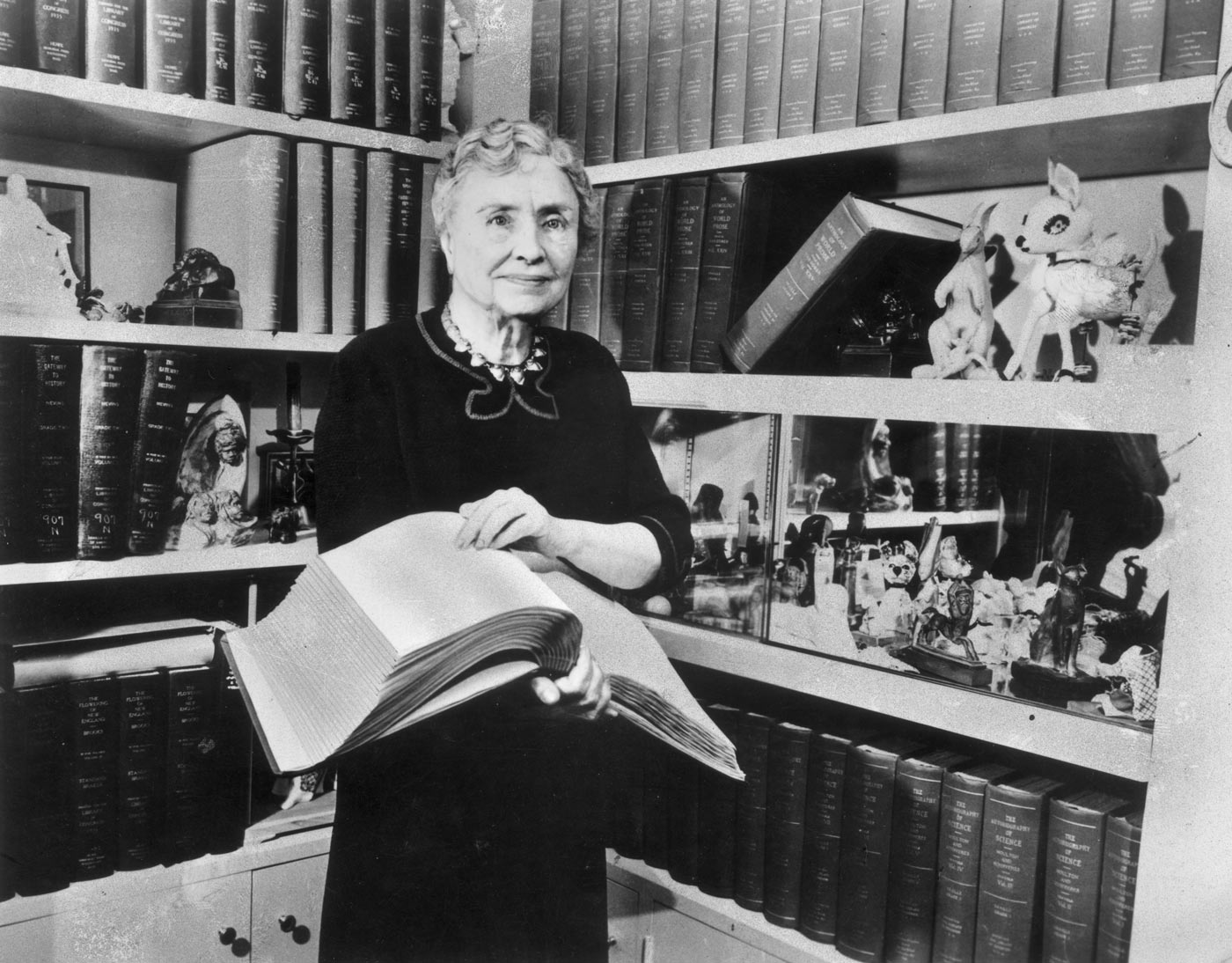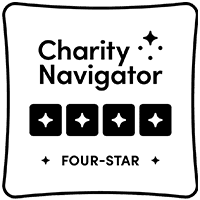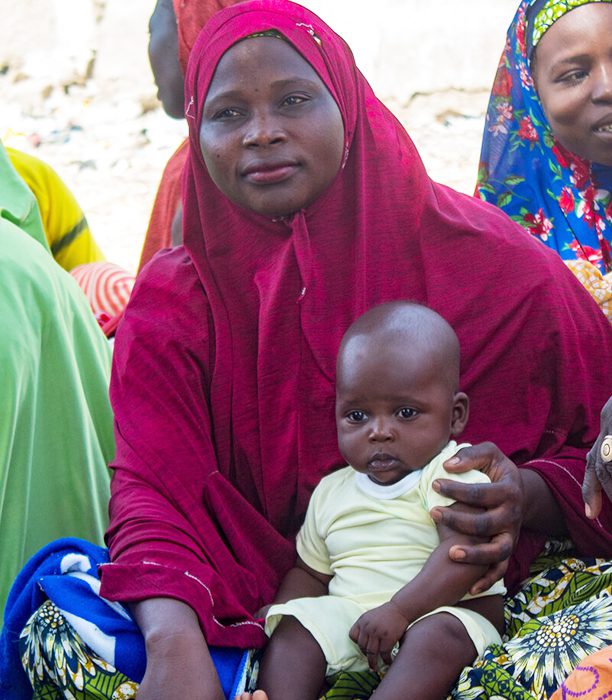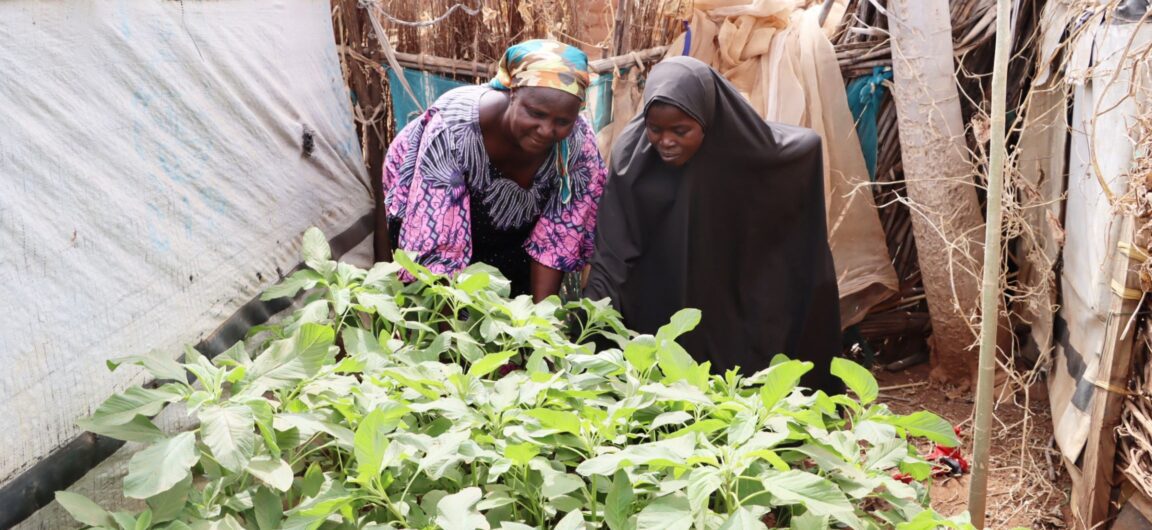
Farming Expert Helps Displaced Nigerian Women Cultivate Food Security and Livelihoods
Rebecca Clement has been cultivating nutritious fruits and vegetables since she was a child. Growing up in a family of farmers in Garta, Nigeria, a small village in Adamawa state near the border with Cameroon, Rebecca began learning how to prepare soil for planting, to space and rotate crops, and to control diseases and pests from a young age.
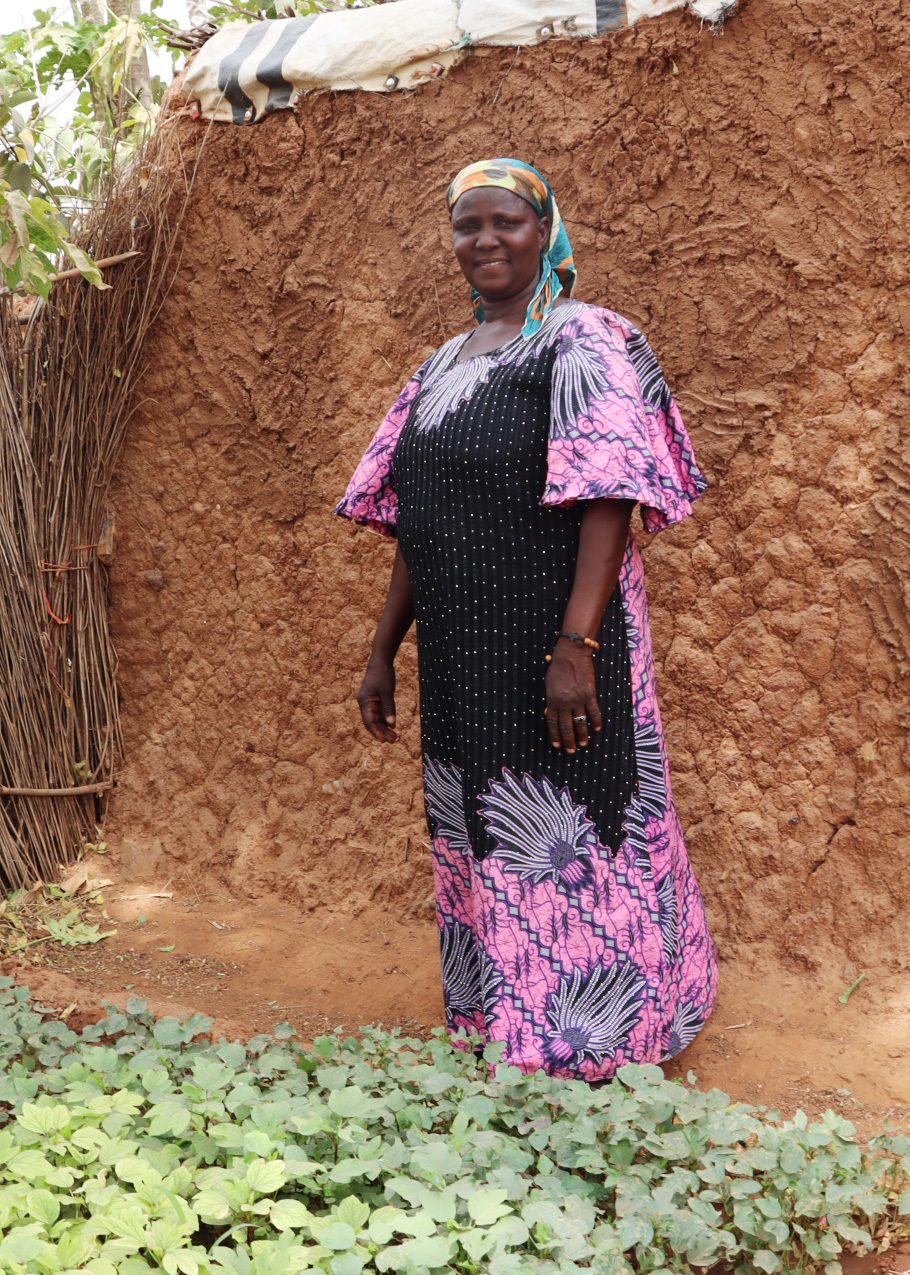
When she got older, Rebecca wanted to share her knowledge and passion for farming to help others and joined the Adamawa Ministry of Agriculture. Now 58, the mother of eight has worked with farmers across the state for 25 years, educating and training them on effective agricultural practices to help improve their crop yields.
In 2020, she volunteered for a new assignment working with Helen Keller Intl to provide agricultural training and resources to women and teenage girls in Daware, another community in Adamawa that is now home to many people who have been displaced by the country’s ongoing conflicts.
Rebecca was moved by the challenges the women were facing and wanted to help. “I felt compassion for them,” she said.
Conflict and Displacement Driving Food Insecurity
Years of insecurity and violent conflict have forced millions of Nigerians out of their homes. The problem is especially acute in northeast Nigeria, where the Adamawa state is located, with nearly 2.3 million displaced people living there. This ongoing violence combined with climate crises and continued rises in food prices means an estimated 25 million Nigerians are at risk of hunger. People who have been displaced are especially vulnerable as they struggle to access and afford food, especially nutritious food critical to their family’s health and survival.
Nigeria isn’t alone in these food security challenges either. According to the World Food Programme, as many as 783 million people worldwide are facing chronic hunger, nearly 200 million more than before the COVID-19 pandemic.
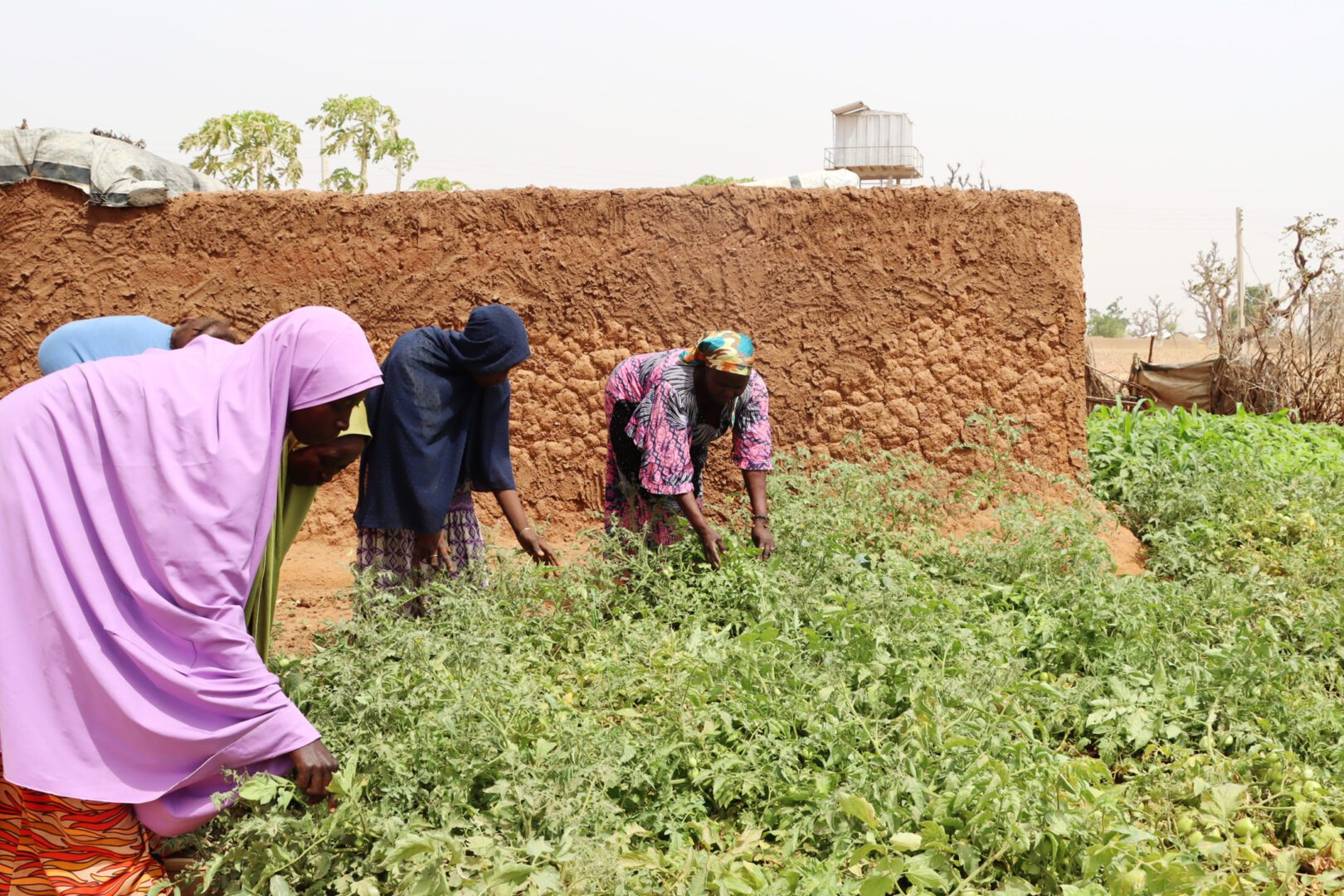
For more than 30 years, Helen Keller Intl has worked with women across Africa and Asia to provide the education and resources they need to grow their own nutritious foods for their families. We partner with farmers, community leaders, and local organizations to support women with supplies and hands-on training on agricultural best practices to help them provide for their families in the face of mounting challenges. Women learn sustainable, climate-smart farming techniques – such as using flood- and drought-resistant seeds, planting in raised beds and tower gardens, and growing local foods according to the season – to help them and their families build resilience against food disruptions caused by increasing incidents of extreme, unpredictable weather.
In Nigeria, with support from The Church of Jesus Christ of Latter-day Saints, Helen Keller is working with five communities hosting displaced people, including Daware, to improve nutrition and food security for women and children by providing nutrition education, child malnutrition screenings, and training and resources to start home gardens.
Sowing Nutritious Foods and Economic Independence
Rebecca travels to Daware regularly to teach women in the community about homestead agriculture and how to cultivate nutritious crops, including leafy greens and vegetables rich in vitamin A. She also provides ongoing support through individual visits to each woman at home. The vegetables the women grow help improve their families’ food security by providing a diverse diet of healthy foods throughout the year.
“As the months progressed, I witnessed the immediate impact of cultivating and consuming nutritious crops and how their lives and nutrition status improved over time,” Rebecca said.
The women she trained also have the opportunity to join a Village Savings and Loan Association, a community microfinance group that offers the members a safe place to place money and access small loans to develop income generating activities.
Rebecca is proud of the progress made by the 71 women she trained, including Hauwa Abubakar, who used a microfinance loan to expand her garden. With a larger plot of land, Hauwa can grow more crops and sell the excess to earn income and improve her economic independence. Her earnings now help support her household, including paying for her children’s school fees and purchasing new clothes.
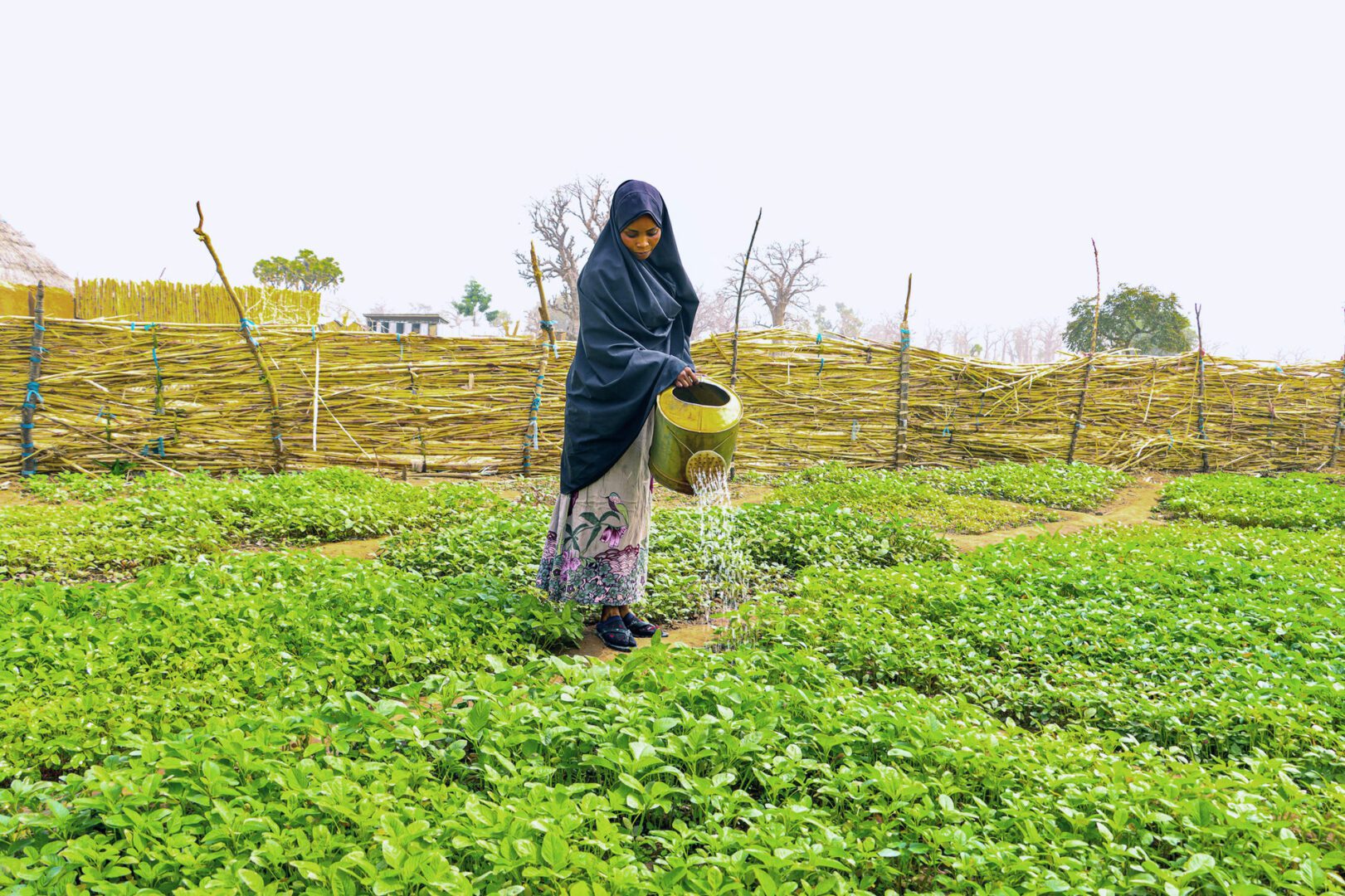
“Helen Keller pioneered this strategy to ensure that [these women] have sustainable income and savings,” said Rebecca. “Out of what they are selling and getting, they are able to cater for their family needs.”
Although her job can be challenging with frequent travel to remote communities, including during the rainy season, the positive impact Rebecca has had on the lives of the women she works with keeps her committed.
“It gladdens my heart,” she shared. “Which is why rain or shine, I always go to the community to supervise their gardens and encourage them consistently.”
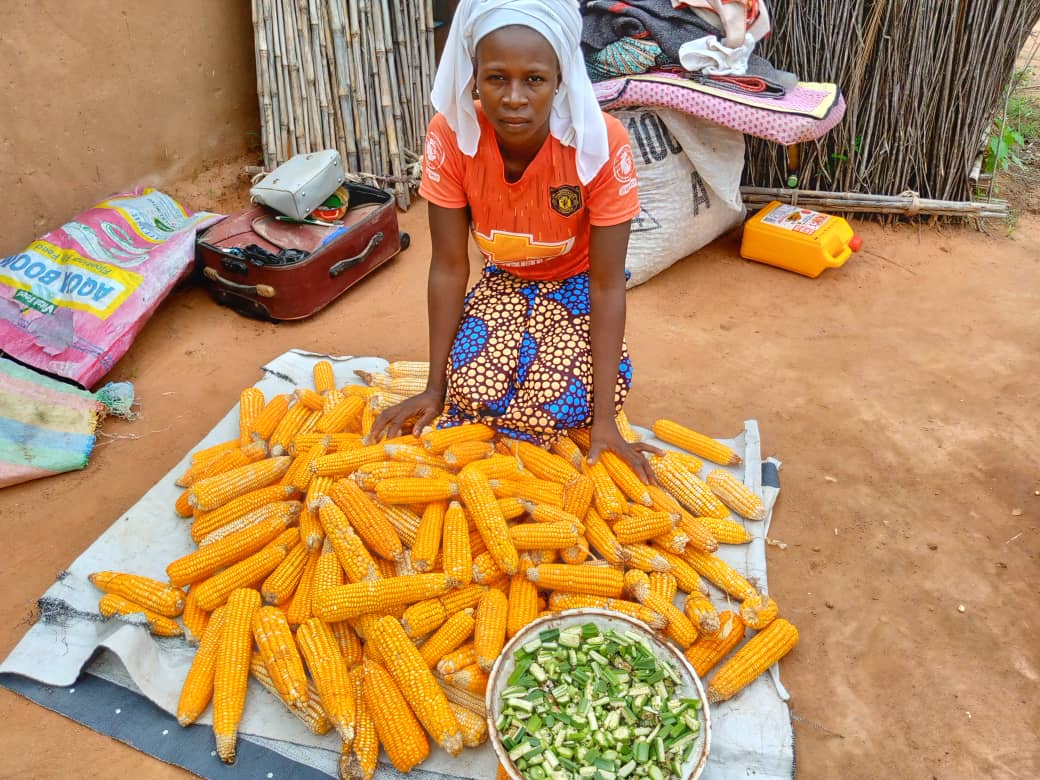
Help us continue to empower women to create lasting change in their own lives.
